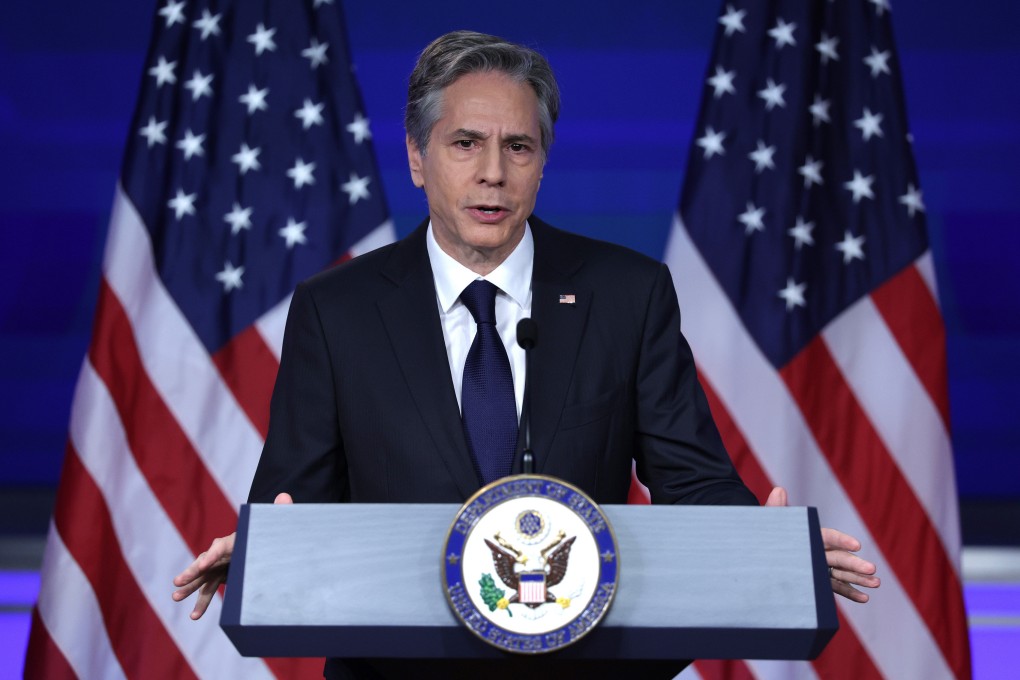Antony Blinken delivers ‘old content in a new context’ in China speech
- Chinese observers say there was less confrontational rhetoric in the US secretary of state’s address but few see signs of a policy softening
- Beijing isn’t won over by Blinken’s ‘eloquence’, saying he was spreading false information, exaggerating threats and smearing its policies

And while Chinese observers say there was less confrontational rhetoric in Thursday’s speech, few see any signs of a softening in Washington’s China policy following recent US inroads into the Indo-Pacific region.
The speech has been described by some as underwhelming and was not well received in Beijing, where the foreign ministry called it an effort to “contain and suppress China’s development and maintain the US hegemony and power”.
Despite Blinken’s “eloquence”, ministry spokesman Wang Wenbin said: “In essence, it was spreading false information, exaggerating China’s threats, interfering in China’s internal affairs, and smearing China’s domestic and foreign policies.”
Wang also accused the US of forming a “small bloc” with other regional nations to contain China, and again stated that Hong Kong, Taiwan, Xinjiang and Tibet were all internal matters for China.
In the 45-minute speech at George Washington University – which covered most of the contentious bilateral issues – Blinken accused China of undermining the international order and “destabilising” the situation across the Taiwan Strait, a word Beijing often uses to attack the US and its allies.